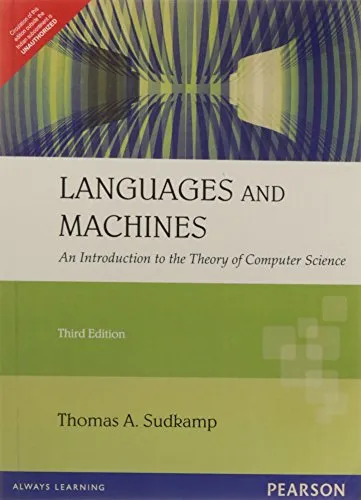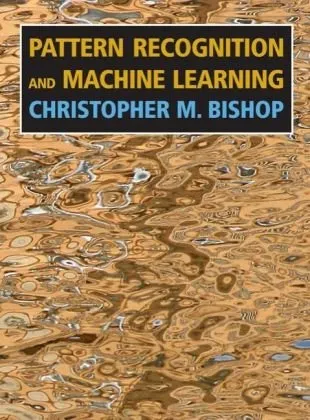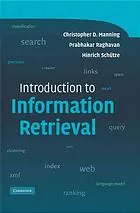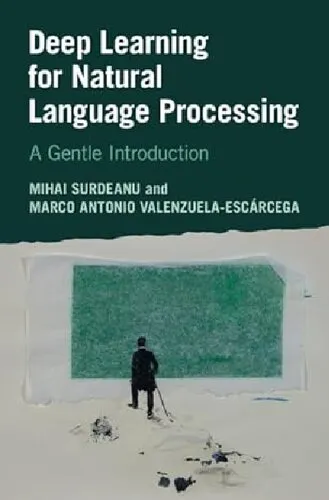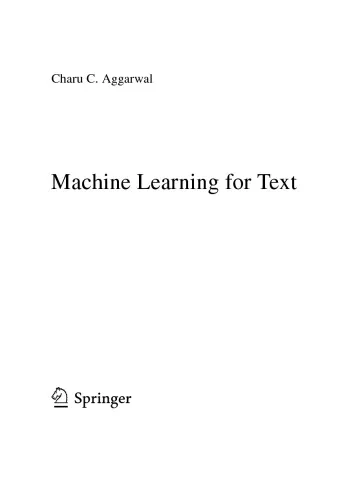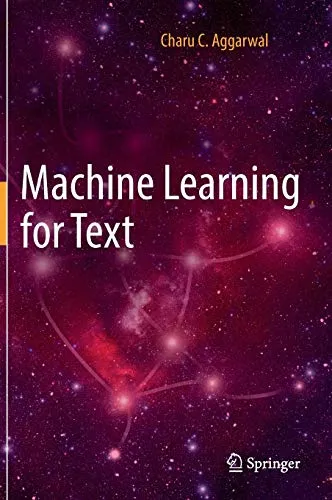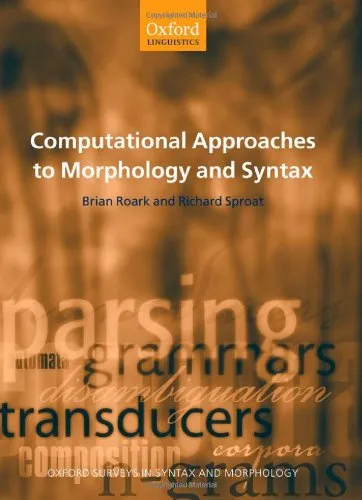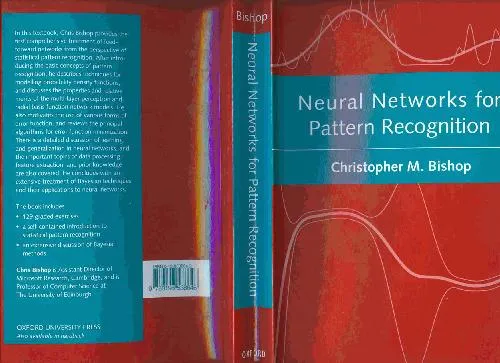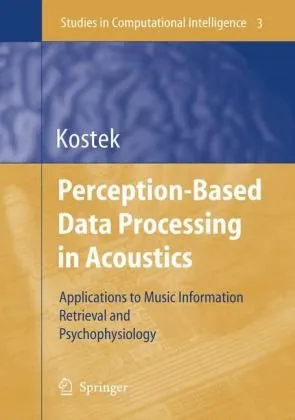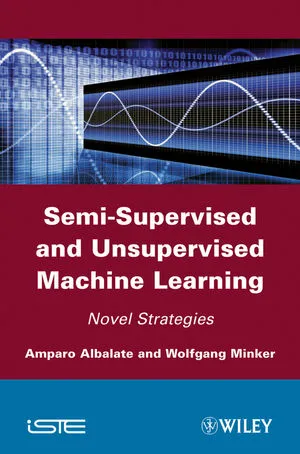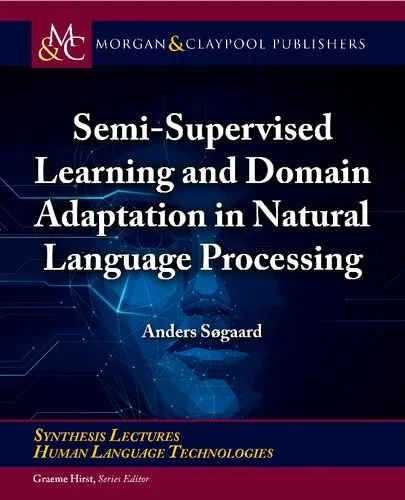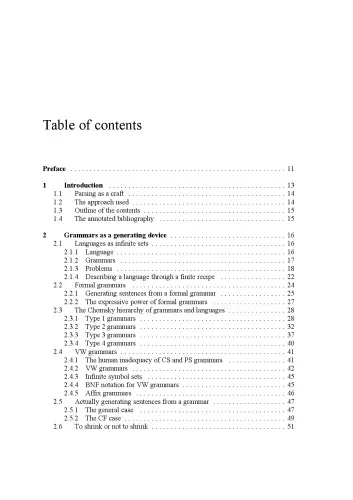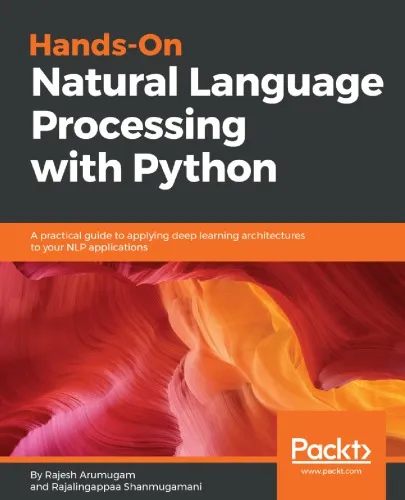Languages and Machines: An Introduction to the Theory of Computer Science
4.3
بر اساس نظر کاربران

شما میتونید سوالاتتون در باره کتاب رو از هوش مصنوعیش بعد از ورود بپرسید
هر دانلود یا پرسش از هوش مصنوعی 2 امتیاز لازم دارد، برای بدست آوردن امتیاز رایگان، به صفحه ی راهنمای امتیازات سر بزنید و یک سری کار ارزشمند انجام بدینکتاب های مرتبط:
معرفی کتاب "Languages and Machines: An Introduction to the Theory of Computer Science"
کتاب "Languages and Machines" یکی از آثار برجسته در زمینه نظریه علوم کامپیوتر است که توسط نویسنده و متخصص برجسته، Thomas A. Sudkamp، نوشته شده است. این کتاب به طور جامع مباحث کلیدی در تئوری محاسبات، نظریه زبانها (Languages)، و طراحی ماشینها (Machines) را پوشش میدهد و از منابع اصلی برای دانشجویان و متخصصان این حوزه بهشمار میرود.
خلاصه تفصیلی از کتاب
این کتاب به طور سیستماتیک و دقیق با نگاهی جامع به مفاهیمی چون Formal Languages، Automata، و Computational Theory میپردازد. در فصلهای ابتدایی کتاب، مباحث اولیه مانند Regular Languages و Finite Automata بهطور مفصل توضیح داده شده است. سپس مباحث پیشرفتهتر نظیر Context-Free Languages، Pushdown Automata و Turing Machines معرفی میشوند.
یکی از ویژگیهای برجسته این کتاب، ارائه مطالب به همراه مثالهای دقیق و قابلفهم است که موضوعات پیچیده را سادهتر میکنند. همچنین در ادامه، مباحث تصمیمگیری (Decidability)، پیچیدگی زمانی و مکانی (Time and Space Complexity)، و موضوعات مربوط به NP-Completeness به بحث گذاشته میشوند. این کتاب نه تنها برای دانشجویان دوره کارشناسی بلکه برای پژوهشگران و علاقهمندان تحصیلات تکمیلی نیز بهکار میآید.
نکات کلیدی
- آشنایی با اصول Formal Languages و انواع آنها مانند Regular و Context-Free Languages
- درک عمیق ماشینهای محاسباتی از جمله Finite Automata، Pushdown Automata و Turing Machines
- مروری بر مباحث Decidability و نظریههای مرتبط با Decision Problems
- تحلیل پیچیدگی زمانی و مکانی الگوریتمها
- تبیین NP-Complete مسائل و چالشهای مرتبط با آنها
- ارائه تعاریف و قضایای تئوری محاسبات در غالب مثالهای کاربردی و مسائل تمرینی
نقلقولهای مشهور از کتاب
"A language is said to be recursively enumerable if there exists a Turing machine that halts and accepts any string in the language."
"Deterministic and nondeterministic finite automata are equivalent in terms of expressive power, but their operational structures differ significantly."
چرا این کتاب اهمیت دارد؟
کتاب "Languages and Machines" به عنوان یکی از منابع استاندارد در نظریه محاسبات و علوم کامپیوتر شناخته میشود. این کتاب به دانشجویان کمک میکند تا مفاهیم پیچیده تئوری کامپیوتر را بهتر درک کنند و دانش خود را در حوزه طراحی الگوریتمها و بررسی پیچیدگی آنها تعمیق بخشند. به دلیل ساختار منظم، استفاده از زبان ساده اما دقیق و پوشش جامع موضوعات، این کتاب برای هر کسی که علاقهمند به نظریه محاسبات است، توصیه میشود.
همچنین، آثار Thomas A. Sudkamp تأثیر فراوانی بر جامعه دانشگاهی داشته و مرجع معتبری برای تدریس و پژوهش در زمینههای Formal Languages و Computational Theory به حساب میآید. از این رو مطالعه این کتاب نه تنها باعث افزایش دانش نظری شما در حوزه ماشینهای محاسباتی میشود بلکه شما را برای مسائل واقعی در دنیای علوم کامپیوتر نیز آماده میکند.
Introduction to "Languages and Machines: An Introduction to the Theory of Computer Science"
"Languages and Machines" is a comprehensive exploration of the theoretical underpinnings of computer science, designed to provide readers with a robust foundation in automata theory, formal languages, computability, and complexity. This book serves as an essential resource for students, educators, and enthusiasts aiming to understand the mathematical and logical principles that drive computational systems. By blending rigorous theoretical discussion with practical insights, it bridges the gap between abstract concepts and real-world applications.
Detailed Summary of the Book
One of the core strengths of "Languages and Machines" lies in its structured approach to elucidating the theory of computation. The book begins with an introductory overview, providing definitions and foundational concepts critical to formal languages and computational theory. As the content progresses, readers are guided through finite automata, regular languages, and context-free grammars with clarity and precision.
The book dedicates significant attention to the study of Turing machines, an essential model of computation that laid the groundwork for modern computer science. Through this discussion, readers gain insights into concepts like decidability and undecidability, enabling them to distinguish between what can and cannot be computed. Additionally, the book explores pushdown automata, parsing techniques, and the relationships between language classes.
'Languages and Machines' also addresses computational complexity, giving readers a deeper understanding of problem classification into P, NP, or other classes. Challenging and thought-provoking exercises are interspersed throughout the chapters to reinforce key lessons and to encourage critical thinking.
At its heart, this book serves as an intellectual toolkit, equipping readers with the ability to approach and solve problems that require a strong theoretical grasp of language recognition, automata theory, and the mathematical structures that govern computation.
Key Takeaways
- A thorough introduction to automata theory and its practical applications.
- Comprehensive coverage of finite automata, Turing machines, and context-free grammars.
- An exploration of various formal languages and their classifications within the Chomsky hierarchy.
- A careful study of computability theory, decidability, and the limits of computational power.
- Insights into complexity theory, problem reducibility, and the distinctions among complexity classes.
By mastering these concepts, learners will develop a strong theoretical foundation that is directly applicable to advanced computer science topics and innovative problem-solving.
Famous Quotes from the Book
"The theory of computation is a celebration of abstraction: the ability to extract simplicity from complexity and to apply it in ways that are both powerful and beautiful."
"Machines, like languages, are artifacts of human ingenuity. Understanding their theoretical underpinnings leads to a greater appreciation of the science that drives them."
"In computability, we do not merely explore the power of computation but also its boundaries, delineating the possible from the impossible."
These quotes reflect the book's emphasis on intellectual curiosity and the value of combining abstract thinking with practical problem-solving.
Why This Book Matters
In the rapidly evolving landscape of computer science, understanding the theoretical foundations is more important than ever. "Languages and Machines" is not just a textbook; it is a guide that helps the reader decipher the intricate relationship between computation, language, and mathematics. It addresses the 'why' and 'how' behind the algorithms and systems we rely on in everyday technology.
The book's emphasis on rigor and logic nurtures critical thinking and analytical skills, which are crucial across all domains of science and engineering. By focusing on abstract concepts such as decidability and computational complexity, the reader is better equipped to tackle modern challenges in data science, artificial intelligence, and algorithm design.
For educators, this book provides a well-structured curriculum for teaching the theory of computation. For students, it offers clarity and depth to inspire deeper engagement with the subject. And for practitioners, it serves as a reference to revisit pivotal ideas that underpin computational advancements. In many ways, "Languages and Machines" holds a timeless value, as its content lays the intellectual foundation for understanding computation at a fundamental level.
دانلود رایگان مستقیم
شما میتونید سوالاتتون در باره کتاب رو از هوش مصنوعیش بعد از ورود بپرسید
دسترسی به کتابها از طریق پلتفرمهای قانونی و کتابخانههای عمومی نه تنها از حقوق نویسندگان و ناشران حمایت میکند، بلکه به پایداری فرهنگ کتابخوانی نیز کمک میرساند. پیش از دانلود، لحظهای به بررسی این گزینهها فکر کنید.
این کتاب رو در پلتفرم های دیگه ببینید
WorldCat به شما کمک میکنه تا کتاب ها رو در کتابخانه های سراسر دنیا پیدا کنید
امتیازها، نظرات تخصصی و صحبت ها درباره کتاب را در Goodreads ببینید
کتابهای کمیاب یا دست دوم را در AbeBooks پیدا کنید و بخرید
1316
بازدید4.3
امتیاز0
نظر98%
رضایتنظرات:
4.3
بر اساس 0 نظر کاربران
Questions & Answers
Ask questions about this book or help others by answering
No questions yet. Be the first to ask!
